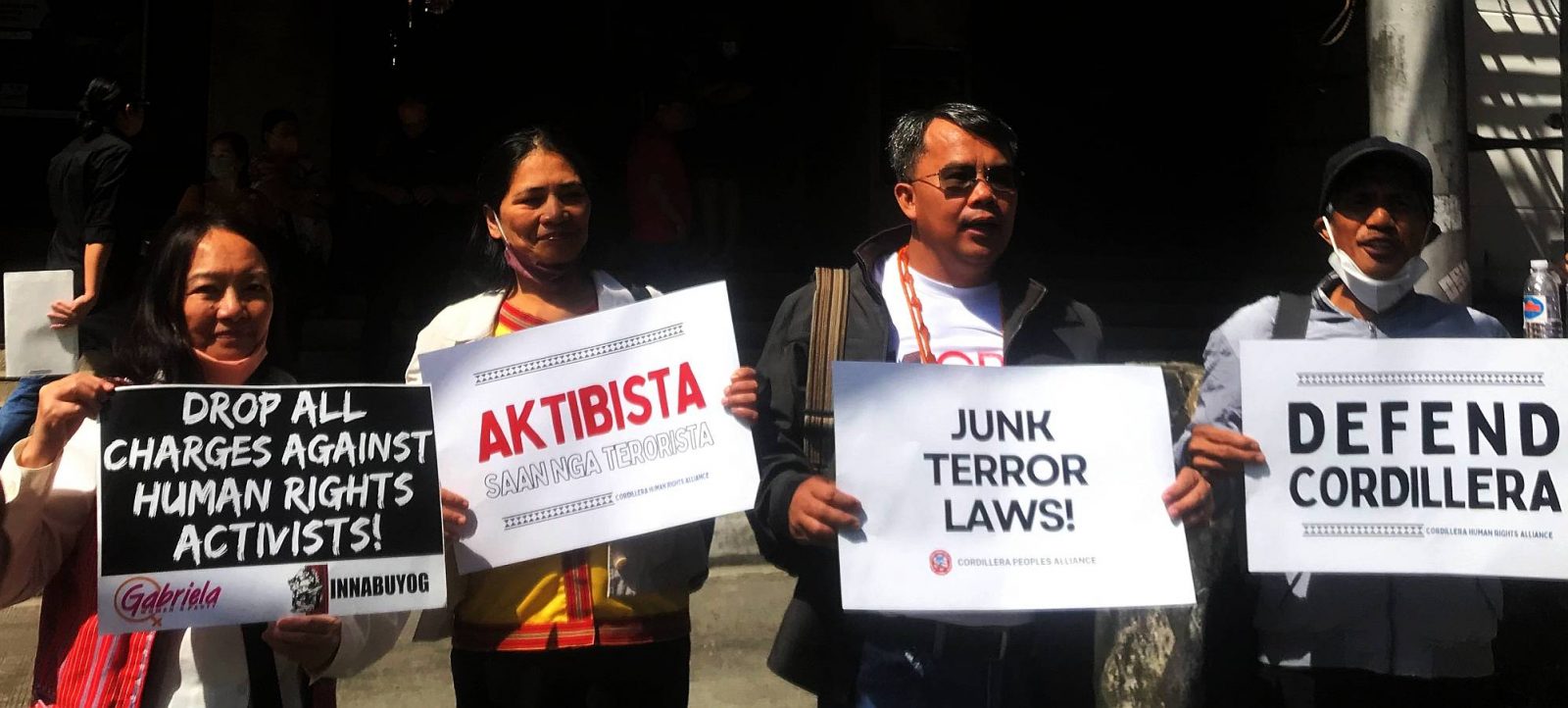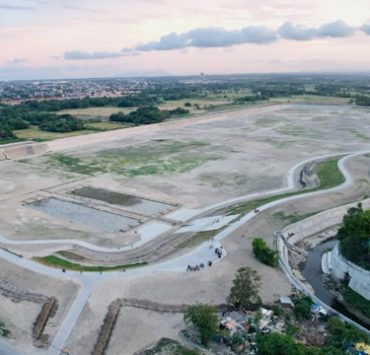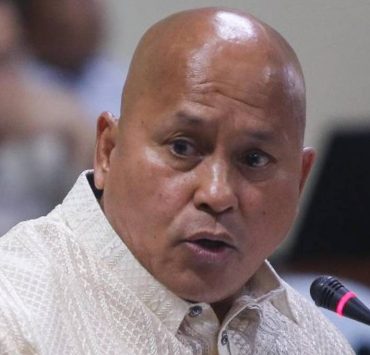Baguio activists all set to challenge ‘terrorist’ tag

BAGUIO CITY — Trial will begin in September the legal challenge filed by four Cordillera indigenous Filipino activists against the Anti-Terrorism Council (ATC) for designating them as terrorists, a Baguio Regional Trial Court (RTC) ruled on Friday
Baguio Regional Trial Court (RTC) Branch 7 Judge Cecilia Corazon Dulay Archog ruled on the holding of the continuous hearings starting on Sept.16 during a pre-trial conference on Friday on the petition for a certiorari filed in 2023 by Windel Bolinget, chair of the Cordillera People’s Alliance (CPA), and three other activists, Sarah Abellon-Alikes, Jennifer Awingan-Taggaoa and Stephen Tauli.
The four CPA members sought for a court review the actions taken by ATC when it issued Resolution No. 41 in July last year classifying them as terrorists. Tauli is the brother of former United Nations Special Rapporteur on Indigenous Peoples, Victoria Tauli Corpuz.
The activists also asked the court to issue a writ of preliminary injunction and remove them from the government’s terror roster, as well as lift an Anti-Money Laundering Council (AMLC) order freezing all their assets.
Unlike “preventive freeze orders” that lapse within 60 days, the AMLC issued the longer “sanction freeze orders” through AMLC Resolution No. TF-67 series of 2023 against Bolinget, Alikes, Taggaoa and Tauli. The “sanction freeze orders” are penalties that appear to be permanent by law.
At the pre-trial, lawyers of the Office of the Solicitor General (OSG) outlined information that allegedly identified or linked Bolinget, Alikes, Taggaoa and Tauli to the New People’s Army, the military arm of the Communist Party of the Philippines.
The OSG informed the court that the government would be presenting four witnesses composed of a former communist rebel, military and police officials and five confidential witnesses.
A government lawyer told the court that the former rebel claimed to have first-hand knowledge of Bolinget’s alleged rebel activities, which the CPA leader has repeatedly denied.
Witnesses
The four activists told the court that they would also be testifying at the trial to belie the government’s claims, along with a witness who would provide evidence that CPA conducts social programs that benefit people.
Joanna Cariño, one of the CPA founders, will also testify on behalf of Bolinget and the three militants, according to their counsel, Ephrain Cortez of the National Union of People’s Lawyers, and the law firm of Baguio Councilor Jose Molintas.
Part of the reason for the petitions was the government’s suppression of information that led to the terrorist designations of Bolinget and the others, Molintas said in court.
The OSG confirmed in court that the Baguio petitions were the only active lawsuits challenging the ATC and the constitutionality of the Anti-Terrorism Act of 2020 (Republic Act No. 11479).
Archog reminded the petitioners that this was the only case regarding the anti-terrorism law that would be heard by an RTC, which was allowed to proceed by the Supreme Court (SC) in February despite the issuance of new judicial rules governing litigation involving the ATC.
The SC has earlier issued Administrative Matters No. 22-02-19-SC, which took effect on Jan.15, that requires grievances against ATC’s actions to be directed to the Court of Appeals.
Archog set the continuous trial dates starting on Sept. 16 that will end after witnesses from opposing sides have all testified in court. She scheduled a morning and afternoon trial period to hear the witnesses to speed up the deliberation.
Constitutionality
Last Monday, the CPA had asked the SC to declare the “sanction freeze orders” as unconstitutional “for violating procedural and substantial due process, for being vague and overbroad, and for failing to pass the strict scrutiny test” in separate petitions for certiorari and preliminary injunction against ATC and AMLC.
The Baguio-based group had questioned the AMLC’s decision to also freeze CPA’s bank accounts in July last year, in spite of the fact that it had not been declared a terrorist organization.
The group went to the high tribunal after the CA’s 10th Division dismissed the CPA complaint in December last year and ruled that the group could not pursue AMLC remedies, which are restricted only to “[terrorist] designated persons.”
The CPA petition before the SC, flied by Baguio lawyer Francisca Macliing Claver, argued that “the vagueness and overbreadth of sanctions freeze order provisions in effect create a chilling effect on the exercise of [basic rights like] freedom of expression” and grants AMLC “unbridled discretion in determining on its own and without probable cause those properties of [terror] designated persons who may be issued a sanction freeze order.”
Claver also asked the court to open oral arguments regarding the constitutional issues enveloping the government’s anti-terrorism laws.

















